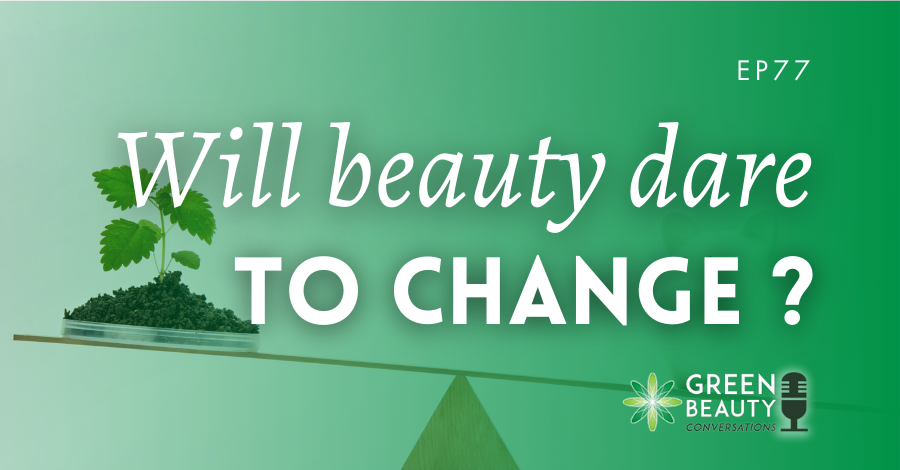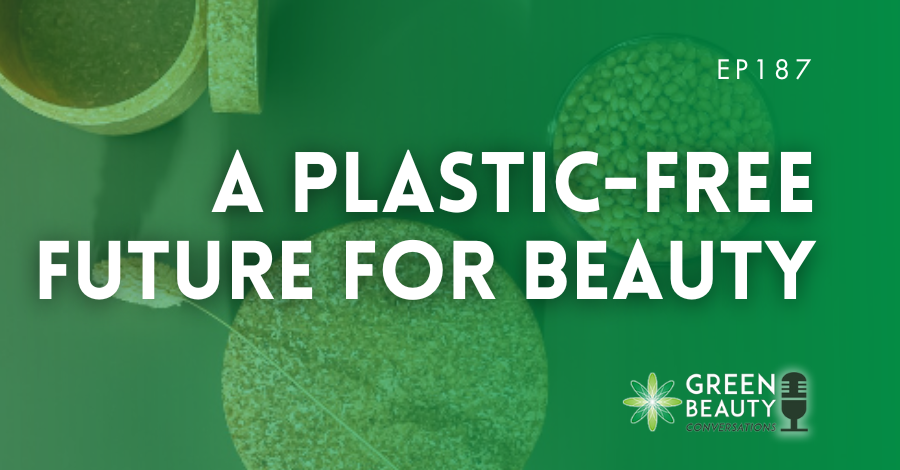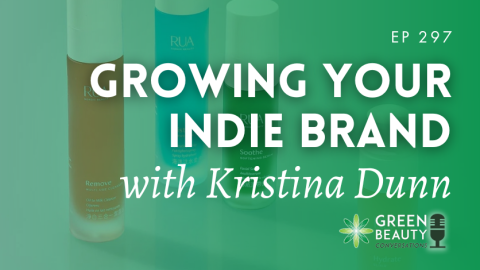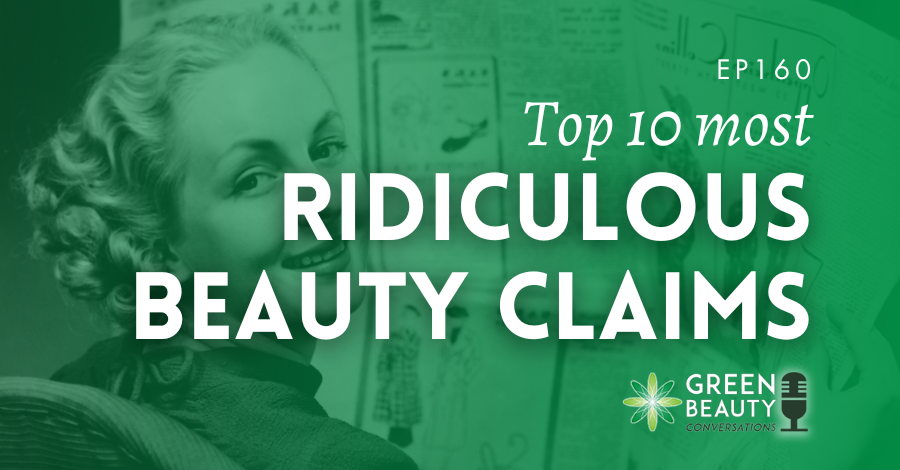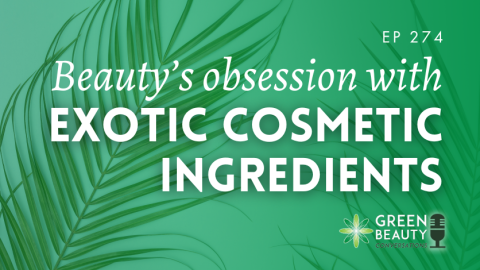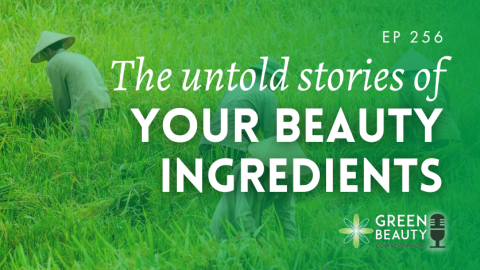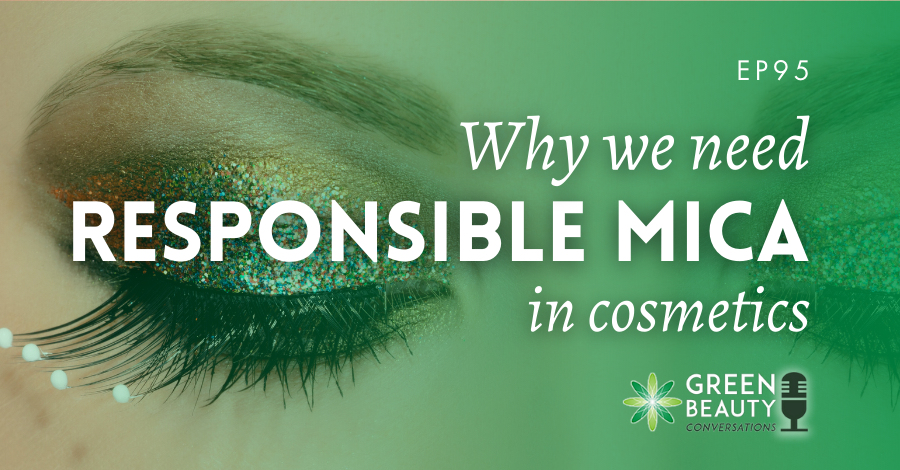“For beauty brands, the risk of not changing is starting to outweigh the risk of changing, uncertain and fraught with challenges as it may be.” When podcast host and Formula Botanica CEO Lorraine Dallmeier read words like these in the British Beauty Council’s report, The Courage to Change, she realised that the beauty industry had reached more than a light bulb moment in its drive for sustainability.
The Council’s 48-page report, which is full of wake-up call statistics and hard-hitting quotes from surveys and leading industry names, is more than window dressing. It shows that the British Beauty Council, a not-for-profit body founded just over three years ago, is already a catalyst for that change.
To find out just how the British Beauty Council is gaining and sustaining momentum and about its role in championing sustainability in the industry, Lorraine spoke to Anna Teal, The British Beauty Council’s Pillar President for Innovation and a leader with over two decades in the commercial beauty sector.
The pandemic year 2020 saw us pause and contemplate not only our own health and well-being but importantly that of the planet. The beauty industry has a unique role to play in this conversation as it leaves few places and people untouched.
From its search for and exploitation of natural ingredients, to its use of water in both product and manufacturing, to the packaging waste it creates and the patterns of consumption its traditional economic model is based on and more, the beauty industry impacts the environment.
It touches all of us whether we’re directly involved in the industry or not. From the obvious actors such as personal care manufacturers and beauty retailers to each of us taking a shower every day, this is one industry that we all participate in.
The beauty industry is not traditionally known for its collaborative approach nor to value the environment more than the volumes of product it churns out. However, the Council’s report states that some 88% of consumers want brands to do more to help them make a difference. Given the sheer diversity and scale of this sector, how can its players collaborate and be the actors of change consumers are demanding?
Listen in for just how this courageous new entity, The British Beauty Council, headed by visionaries like Anna Teal, is determined to help the beauty industry change the habits of a lifetime.
Does the beauty industry have the courage to step up to the challenge of sustainability? @FormulaBotanica asks podcast guest #AnnaTeal @bbeautycouncil for some answers. #sustainablebeauty #greenbeauty #britishbeautycouncil Share on XIn this podcast with the British Beauty Council, you will hear:
- About the mission and role of the British Beauty Council and its 3 core pillars: Education; Reputation; and Innovation aimed at raising beauty industry career standards and opportunities, building the industry’s capabilities as an advisory partner, and elevating innovative, sustainable entrepreneurship in beauty.
- Why the Courage to Change report was so ground breaking in its scope and so ‘of its time’.
- How the report was received by the beauty industry and why it marks the beginning not the end of the period of courageous change.
- What the beauty industry is doing right now to put the Council’s road map into action.
- How consumer purchasing choices are key to driving sustainability in beauty. In return for their spend, consumers are demanding that beauty businesses embrace, for example, B Corp values as a measure of their success rather than profit alone.
Key take-outs include:
- The cycle of consumption was broken by the pandemic which provided a unique opportunity for the beauty industry to reflect and re-imagine its business models.
- With consumers now saying things like “I can’t decide what’s in most beauty products and what impact they have on my skin”, it is clear that consumers are changing the conversation on how beauty does business.
- Examples of areas of beauty that show consumers and industry in synch are the drive for waterless beauty and the rise in ‘naked products’ that retail with minimal packaging.
- An immediate way the beauty industry can step up and gain consumer trust in its ability to drive sustainability is to be transparent. For example, while the industry might adhere to legal requirements in marketing claims, consumers clearly feel green-washing is commonplace.
Meet our guest: Anna Teal

More information:
The British Beauty Council
The Courage to Change Report, Oct. 2020 (PDF)
Road Map and Key Initiatives, 2021, British Beauty Council (PDF)
If you enjoyed this interview with Anna Teal of the British Beauty Council, you might also like these episodes on sustainability in the beauty industry.
Podcast 14: Sustainable beauty – discussing the top issues and concerns
Podcast 69: Biodegradable beauty – license to greenwash the beauty industry?
Podcast 66: What is circular beauty?
Green Beauty Opinion – Podcast 78: We can’t shop our way to sustainability
Lorraine follows up our guest episodes with 5-minute Green Beauty Opinions in which she shares her thoughts on the key issues raised. As follow up to her interview with Anna Teal of the British Beauty Council, Lorraine asks if the beauty industry can ever do more than pay lip service to sustainability if rampant consumption of beauty products lies at the heart of its economic model. Green Beauty Opinions prompt us all to be the voice of change and integrity, making the beauty industry better and more sustainable.
Listen to Lorraine’s Green Beauty Opinion:
You might also like to listen to our other episodes on sustainability issues:
Top sustainability challenges and concerns for the beauty industry
Are indie brands falling behind on sustainabiity?
Can a beauty brand ever be carbon neutral?
Thank you for joining us for this episode of the Formula Botanica Green Beauty Conversations podcast. If you enjoyed listening, please share, subscribe and review this episode on Apple Podcasts, Spotify or Youtube so that more people can enjoy the show. Don’t forget to follow and connect with us on Facebook and Instagram.
FREE TRAINING
Learn how to become an
Organic Skincare Formulator
FREE TRAINING
How to become an
Organic Skincare Entrepreneur
FREE TRAINING
How to become an
Organic Skincare Entrepreneur
Leave us a comment
Lorraine Dallmeier is a Biologist, Chartered Environmentalist and the CEO of Formula Botanica, the award-winning online organic cosmetic science school. Read more about Lorraine and the Formula Botanica Team.

